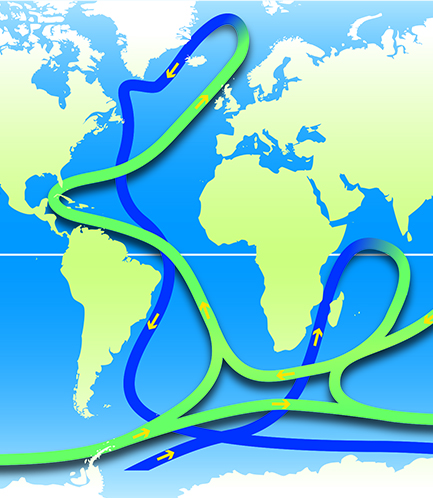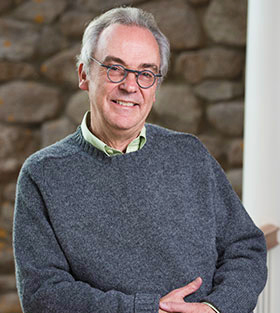Mark Abbott — President and Director, Woods Hole Oceanographic Institution
Listen to Mark Abbott’s Environmental Podcast Episode
“The Sea Has Many Voices” is the podcast to listen to if you’re interested in learning about ocean conservation. You can watch our interview with the president of Woods Hole Oceanographic Institution, Mark Abbott, below or on Youtube. Listen on podcast popular channels like Soundcloud, Spotify, Google Play and Apple Podcast.
Check out our environmental podcast channels below:
Listen to Mark Abbott’s Environmental Podcast Episode
“The Sea Has Many Voices” is the podcast to listen to if you’re interested in learning about ocean conservation. You can watch our interview with the president of Woods Hole Oceanographic Institution, Mark Abbott, below or on Youtube. Listen on podcast popular channels like Soundcloud, Spotify, Google Play and Apple Podcast.
Check out our environmental podcast channels below:
President of Woods Hole Oceanographic Institution Mark Abbott Talks About Marine Conservation Research
Woods Hole Oceanographic Institution Part 1:
Dr. Mark Abbott, President and Director of the Woods Hole Oceanographic Institution (WHOI) sits down with Dr. Greg Stone to talk about the institution’s work studying the Gulf Stream.
Woods Hole Oceanographic Institution Part 2:
RELEASE DATE:
August 8th, 2019
Dr. Mark Abbott, President and Director of the Woods Hole Oceanographic Institution (WHOI) sits down with Dr. Greg Stone to talk about the institution’s work studying the ocean’s twilight zone.
Woods Hole Oceanographic Institution Part 3:
RELEASE DATE:
August 29th, 2019
Dr. Mark Abbott, President and Director of the Woods Hole Oceanographic Institute (WHOI) sits down with Dr. Greg Stone to talk about the institution’s work studying oceanography engineering.
More on the President of Woods Hole Oceanographic Institution
Institution (WHOI), Dr. Mark Abbott leads the U.S.’s largest private marine science research institution. Woods Hole Oceanographic Institution’s mission in scientific research is to advance knowledge of the ocean and its connection to Earth’s ecosystem. They are leaders in oceanography engineering research, specializing in the gulf stream and the ocean’s twilight zone. In addition, Woods Hole Oceanographic Institution are experts in topics revolving around oceanic food chains and coral reef bleaching.
Dr. Abbott sees Woods Hole Oceanographic Institution’s scientific research taking two different paths. On one side is the pure “I’ll dive into marine science and be surprised by what I find.” On the other side is targeted marine engineering that addresses specific problems around ocean conservation. Dr. Abbott recognizes how global climate change has sparked a new sense of urgency for marine science researchers. Now more than ever, marine scientists want to see their scientific research make an impact on ocean conservation. It is Woods Hole Oceanographic Institution’s responsibility to guide their research towards global climate change solutions.
Guiding the Changing Nature of Research at Woods Hole Oceanographic Institution
As the Director of Woods Hole Oceanographic Institution, Dr. Abbott has the privilege of leading an institute dedicated to pure marine science research. As a private institution funded by a combination of government and private grants, scientists can pursue scientific research of their own choosing. Mark calls this the “Ivory Tower” of research. It is a place where marine engineering researchers can explore the boundaries of their imagination. Woods Hole Oceanographic Institution is truly unique. Up until the ‘60s or ‘70s, the vast majority of oceanography engineering research was done by the Navy of the world’s major powers. When Woods Hole Oceanographic Institution opened in 1930, it was one of the few institutions doing marine engineering research without a military agenda. Today, Woods Hole Oceanographic Institution has become a leader in ocean conservation and research.
The Gulf Stream: One of Woods Hole Oceanographic Institution’s Major Areas of Study
The Gulf Stream, one of Woods Hole Oceanographic Institution’s major areas of study is a great example of how much one natural phenomenon affects everything. The Gulf Stream is often called a “river in the ocean.” It is a current that takes warm water from the Gulf of Mexico, flows up the Atlantic coast of North America, and crosses the ocean to Europe. In Stone and Abbott’s podcast on Spotify, they reflect on the importance of the Gulf Stream and its historical impact. Scientific research has revealed that 40,000 years ago, the Gulf Stream boosted agriculture and allowed civilizations to take root in Europe. In fact, the Gulf Stream has directly shaped European Civilizations.
On Dr. Abbott’s podcast on Google Play, he explains “how the Gulf Stream moderates temperatures in northern Europe.” Without the Gulf Stream, England would be like Alaska and Norway like Antarctica. In American history, it was none other than American luminary Benjamin Franklin who first mapped the Gulf Stream current. In his position as a deputy postmaster, Franklin investigated why certain trans-atlantic routes were faster than others. This led to the mapping of the Gulf Stream. Sadly, Franklin’s maps were largely ignored and were thought lost. It was a Woods Hole Oceanographic Institution scientist, Dr. Philip L. Richardson, who discovered copies of the map in 1978.






